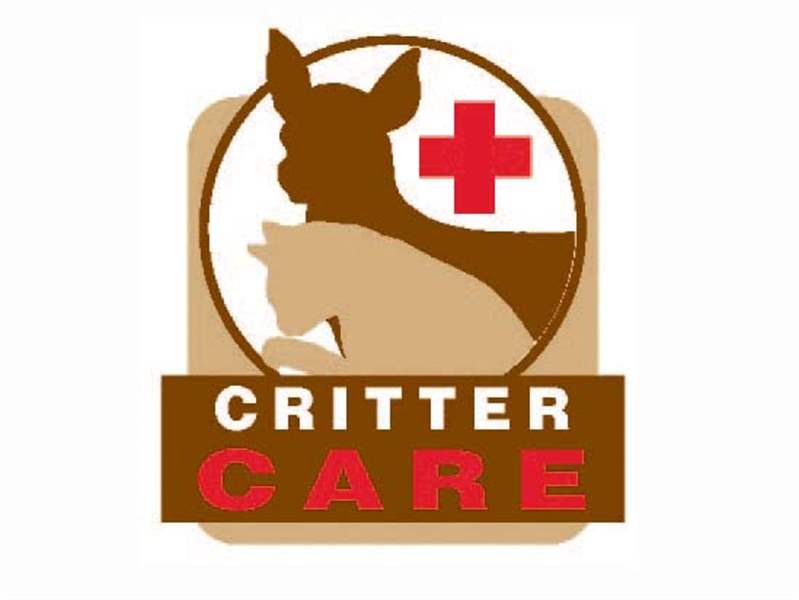
CRITTER CARE
Pets still can enjoy life despite heart disease
Dogs, cats can be treated with daily medications
3/26/2013

‘It’s all about the quality of life,’ says Kim Kearns of her Shetland sheepdog, Joey, 14, who has congestive heart disease.
Kim Kearns feared the worst when her Shetland sheepdog was diagnosed with congestive heart disease.
Six months later, the dog, named Joey, is still full of spunk and takes his twice-daily medicine, hidden by Ms. Kearns in a tiny piece of fig-sandwich cookie, like a champ.
“He doesn’t act like a sick dog — he still has this super great quality of life,” Mrs. Kearns said. “If you met him, you'd never know he had a heart problem.”
The 14-year-old Sylvania Township dog, whose long coat is a lovely blue merle color, was used to getting daily medication; he was diagnosed with a thyroid condition when he was 18 months old.
Now, in addition to the thyroid medication, Joey receives a veterinary heart medicine for dogs called Vetmedin and two medications that are also prescribed for humans with heart conditions: Enalapril and Furosemide.
Mrs. Kearns obtains prescriptions from her veterinarian and is able to fill them at the Target pharmacy, where she obtains her own medications, for a fraction of what veterinarians charge for dispensing the drugs.
“It’s something people might not think to ask their vet, but there are options for where you can get the medication,” she said. If people found out how affordable pet drugs can be, they might have more options available than euthanizing their animals because they can’t afford the cost of treatment, she added.
Mrs. Kearns’ first indication that Joey was ill was a slight cough, which he only occurred in the morning.

Joey, who has been treated for a thyroid condition since he was 18 months, takes daily medications hidden in a piece of cookie.
“It was very subtle, like he was clearing his throat, and that’s it,” she said.
She had taken him in to see the vet on another matter and mentioned the cough. Joey’s blood was tested and the heart disease was discovered.
A blood test can diagnose heart disease by picking up certain cardiac markers, said Joey’s veterinarian, Dr. Gary Thompson of West Suburban Veterinary Hospital in Sylvania Township. A heart murmur, which the vet hears during the annual examination, also can indicate a cardiac issue.
Other symptoms to look for include shortness of breath and loss of energy, Dr. Thompson said. Both cats and dogs can get heart disease.
“Congenital defects are seen in young animals,” he said. “Congestive heart disease is a result of cardiomyopathy due to the loss of function. Cats get a hypertrophic, or thickened, heart muscle most commonly.”
Dr. Thompson and the other vets in his practice are able to treat most heart diseases there without the need for a referral to a cardiologist in Detroit or Columbus, he said.
“It depends on the severity and type [of heart disease],” he said. “Many congenital defects, like a patent ductus arterosus, require surgery and we send those out.”
The Ohio State University college of veterinary medicine’s cardiology department treats dogs, cats, horses, cattle, llamas, alpacas, birds, and other animals suspected of having heart disease. The university also treats dogs and cats with respiratory disorders, whose symptoms are often similar to animals suffering from heart disease.

Newer drug therapies can prolong quality and quantity of life, Dr. Thompson said.
“A diagnosis of heart disease can still mean excellent lifestyle for an extended time, but it depends on the type and severity of disease,” Dr. Thompson said.
After starting on heart medication six months ago, Joey was fine until a few months ago when he started to cough again. Mrs. Kearns took him to Dr. Thompson, who tweaked the dosage of one drug and added a third medication.
“Now he’s doing absolutely fabulous,” Mrs. Kearns said. “Once we got the heart condition under control, he actually needed a lower dose of the thyroid medicine. And Dr. Thompson says he still has a few tricks up his sleeve if Joey should start coughing again.”
Mrs. Kearns has advice for pet owners who are facing a cardiac diagnosis for their pet for the first time.
Most of all, she would tell them not to panic and not to give up.
“It’s easily managed,” she said. “To give pills a couple of times a day is not a big deal at all.”
Contact Tanya Irwin at: tirwin@theblade.com or 419-724-6066.